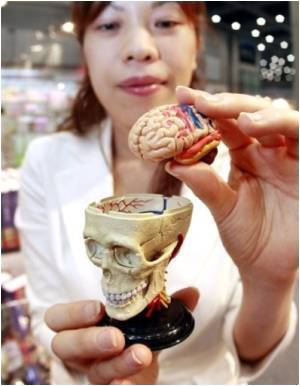
"From middle age onward, there are universal changes in the brain affecting perceptual processing. We used to think these were permanent changes and now are beginning to think maybe they're not," said lead author Etienne de Villers-Sidani, a neurologist and post-doctoral fellow with the UCSF Department of Otolaryngology.
The study found that intense auditory training greatly improved sound perception and processing among rats that had previously experienced normal, age-related sensory-processing degradation.
Collaborators Rick C.S. Lin, and Kimberly Simpson, along with graduate student Loai Alzghoul at the University of Mississippi Medical Center (UMMC), documented physical changes in the brains of the trained, aging rats in the paper. They found that myelin density and neuron health improved in the primary auditory brain regions to nearly the level seen in young rats.
"These results are encouraging because as Baby Boomers age, we'll have more and more elderly people. They indicate that you shouldn't just stick to your routine. Challenge yourself and don't stop doing something just because you might take longer at it," said Lin, a professor of anatomy at the UMMC.
The study builds upon extensive previous research in the laboratory of Michael M. Merzenich, UCSF professor of otolaryngology and physiology and senior author on the paper. Merzenich's research had demonstrated how cognitive training can powerfully rewire brain circuits. de Villers-Sidani said he and collaborators are in the first stages of designing programs and figuring out which training strategies will be most effective in humans.
Advertisement
Post-mortem analysis of the rats' auditory cortices showed surprising physical changes in the aged-trained group.
Advertisement
The untrained aging rats showed on average 25 percent fewer inhibitory neurons compared with the untrained young rats. Training the aging rats partially reversed that trend. The aging trained rats showed an average 20 percent increase, while myelin density also improved.
"The neurons looked young again. They were full and robust. It's like a hose without water going through it appears collapsed. Run the water and it expands to its original size. Recovery happens. It indicates the brain is a lot more plastic. The training exercises reopen the hose and the rats recovered almost to the point of young rats," Lin said.
de Villers-Sidani said: "If we can sort out what normal brain aging is, then that will help us sort out pathological age-related diseases like Alzheimer's."
Source-ANI










